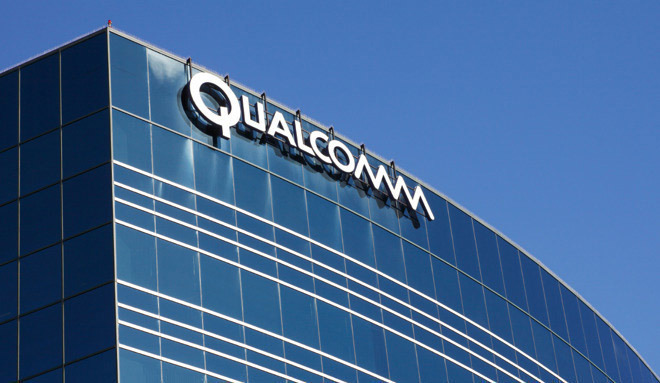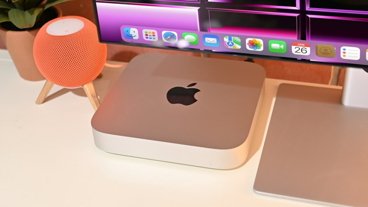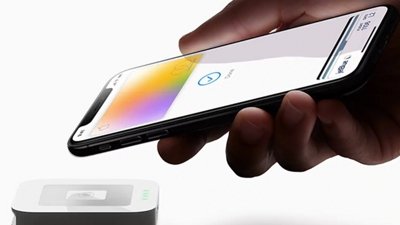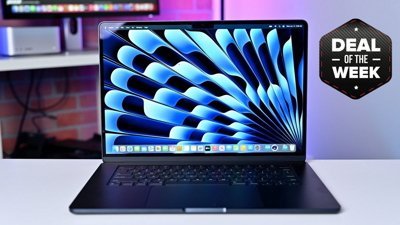Qualcomm points to innovation costs as shield to FTC's antitrust claims
The U.S. Federal Trade Commission has rested its case against Qualcomm, with the chip maker saying that innovation is expensive, and its licensing practices are justified based on that alone.
The ongoing trial in San Jose, California continued on Tuesday with the FTC finishing off presenting evidence that Qualcomm was monopolizing the wireless chip business. Applying "excessive" royalty rates to wireless patents helped push up the cost of devices for consumers, as well as made it harder for other companies to compete, the regulator claims.
The FTC argues that Qualcomm's "no license, no chips" policy, which requires mobile device producers to agree to license patents from Qualcomm when using its chips, gives Qualcomm a vast amount of leverage in its negotiations with firms, while also preventing competition from taking place, reports CNet.
University of California professor of economics Carl Shapiro testified as an expert for the FTC on Qualcomm's policy, advising he came to the conclusion that Qualcomm had a monopoly on CDMA modem chips and LTE modems through 2016, suggesting "It's my view they harmed competition in those two markets."
While commending Qualcomm for its technological achievements, Shapiro notes "what's really important is that companies who aren't quite as good or who don't have the scale are not impeded from trying to catch and threaten and challenge the leader."
Shapiro also testified that Qualcomm abused its market power to demand an "unusually high amount" for patent royalties, calling it "a very heavy hammer that Qualcomm is bringing down, at least as a threat, in those negotiations."
The patent royalties argument echoes comments made by CEO of IP licensing company 284 Partners Michael Lasinski on Monday, who called Qualcomm's fees "far too high to be consistent with their FRAND operations," and must be licensed in a fair and reasonable manner.
Ericsson licensing executive Christina Petersson's video testimony claims a fair royalty rate for multimode LTE is around 6 percent to 8 percent per device, though Lasinski erred towards the lower end of the scale as phones now do a lot more than when Ericsson first came up with that licensing range.
In testimony from Apple Chief Operating Officer Jeff Williams on Monday, Apple wanted to pay a licensing fee of $1.50 per device, as based on a 5 percent charge per modem, but ended up paying $7.50 per device. Even this figure wasn't enough for Qualcomm, which allegedly wanted to raise it further.
The trial then switched control over to Qualcomm, which claimed consumers used devices with its chips due to them being the best, and denying claims it stopped supplying processors to customers that are fighting the company over patent licenses.
Qualcomm co-founder Irwin Jacobs took to the stand to cover the early years of Qualcomm's existence, including explaining how the idea of CDMA arrived on a trip to San Diego.
The chip company licensed its technology to enhance its development of CDMA, charging an initial fee and royalties based on sales to companies including AT&T, Motorola, and Nokia. "Everything was negotiated, we wanted something low enough that it did not impede progress should this become a commercial product, we wanted to see this used as broadly as possible worldwide, insisted Jacobs.
"The industry began to realize it was important to provide mobile internet access, data communications," according to Jacobs. "Essentially all third-generation network technology is based on CDMA."
Qualcomm SVP in charge of 4G and 5G operations Durga Malladi also spoke at the trial, highlighting the innovation of Qualcomm in 3G, 4G, and 5G mobile technology. At the time of the evidence cutoff for the trial in March 2018, Qualcomm was the only firm capable of producing processors that could be used on millimeter wave 5G networks.
While fast, 5G has issues in that it can easily be impeded by objects and the landscape, and works over shorter distances, issues Qualcomm has worked to fix. "We are interested in moving the needle quite significantly when it comes to a lot of the communications problems we want to solve," insists Malladi.
Closing arguments are set for February 1.
 Malcolm Owen
Malcolm Owen











 Andrew Orr
Andrew Orr
 Marko Zivkovic
Marko Zivkovic

 Christine McKee
Christine McKee
 William Gallagher
William Gallagher
 Andrew O'Hara
Andrew O'Hara

 Sponsored Content
Sponsored Content







